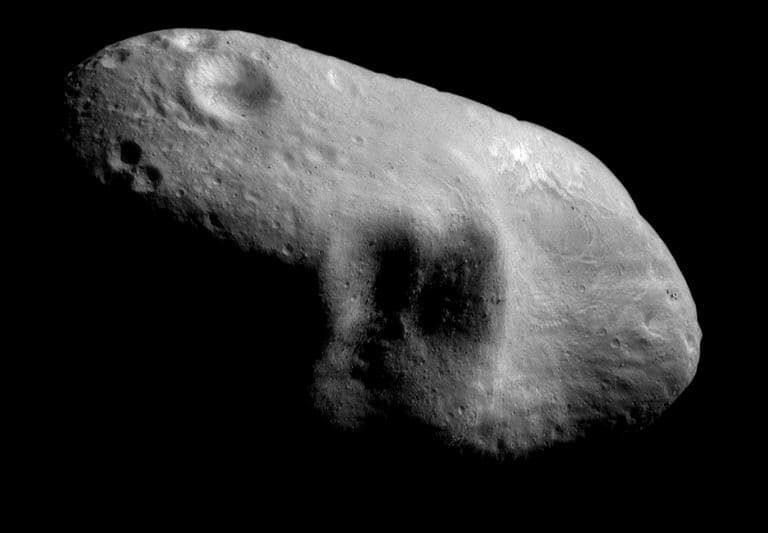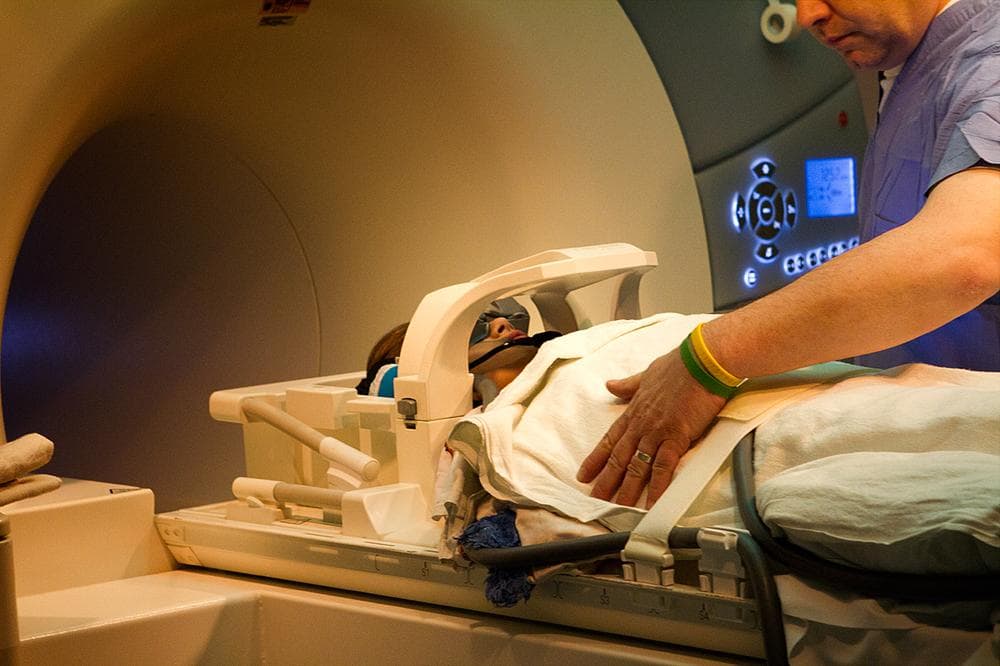Advertisement
Could Asteroid Mining Work? An Outer Space Lawyer Weighs In

You've heard of mining the earth for diamonds or coal. But how about mining natural resources from an asteroid?
It might sound like the topic of a sci-fi novel. But at a press conference this week at the Seattle Museum of Flight, a group of big-name technology entrepreneurs and investors announced that they had created a company called Planetary Resources Inc. that will, indeed, mine asteroids.

"Since my early teenage years, I've wanted to be an asteroid miner. I always viewed it as a glamorous vision of where we could go," Peter Diamandis, one of the founders of Planetary Resources Inc., said at the news conference. He wants to "make the resources of space available to humanity."
The company says they plan to go after the 1,500 or so asteroids that pass near the earth, 10 percent of which have water or valuable minerals -- water, gold and platinum, among others.
Water For Space Gas Stations
The water is important because its components are an important source of fuel for spacecraft. The hope is to use the water for fuel depots, space gas stations of sorts, for other space vehicles. The other minerals could be mined and transported back to earth, which the company says could help bring down prices of those minerals on earth.
The first step is to launch telescopes that will search for asteroids with abundant resources. After that, the entrepreneurs hope to build robot-controlled space ships to mine the minerals.
Or at least that's the plan.
High Costs
But outside experts are skeptical that the operation would be too pricey, and that the technology needed to do it is too far off.
Harvard's Tim Spahr, director of the Minor Planet Center, told the Huffington Post that getting drilling equipment into space and operating safely sounds "expensive and difficult."
"It would be awfully hard to make money on it," Spahr said.
But the idea is still being taken seriously. As the Huffington Post reports:
Richard Binzel, professor of planetary science at the Massachusetts Institute of Technology, said the effort "may be many decades ahead of its time. But you have to start somewhere."
Anderson said the benefit to humanity – and investors – is worth it.
"We do understand that the pot of gold at the end of this rainbow, if it's successful, will be big."
Boston-based space law attorney Rosanna Sattler told Here & Now's Sacha Pfeiffer that the idea is being taken more seriously because of the business model.
"You have a lot of very very wealthy entrepreneurs who are not afraid to invest their money and perhaps lose some of it. These individuals are very committed to outer space," she said.
She also said that NASA would be happy if the company succeeded.
"NASA welcomes this company because one of the things it's going to do is lower the cost of access to space and its also going to help NASA get into deep space particularly if the refueling depots are in space, it will cost a lot less to get into deep space."
Guest:
- Rosanna Sattler, she's a Boston attorney and Harvard Law School graduate whose specialities include space law.
This segment aired on April 26, 2012.